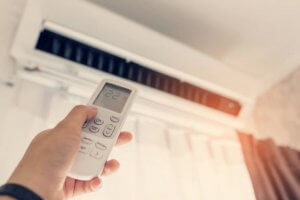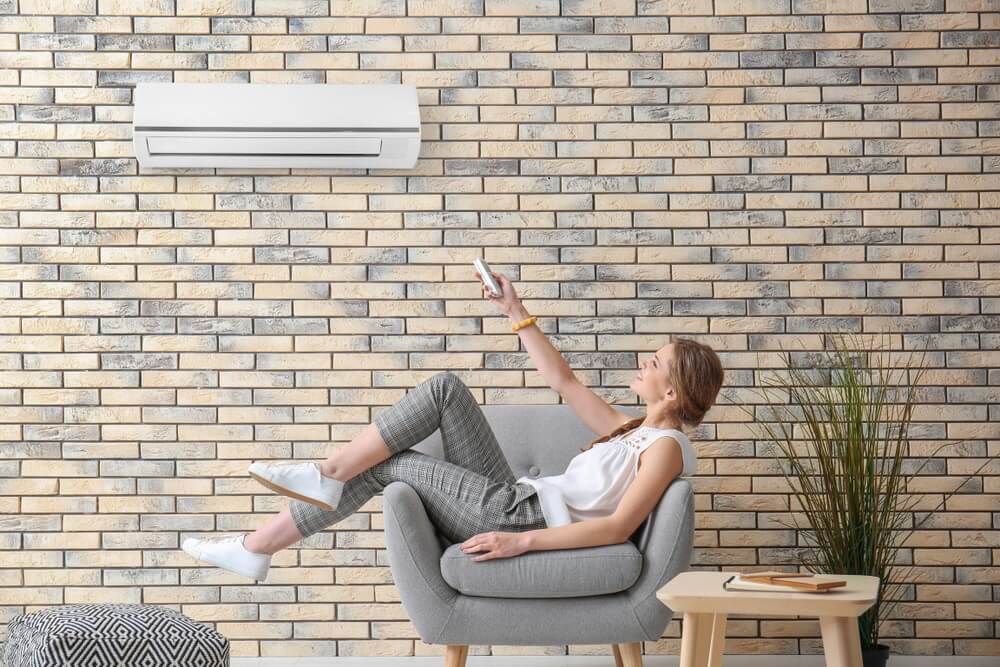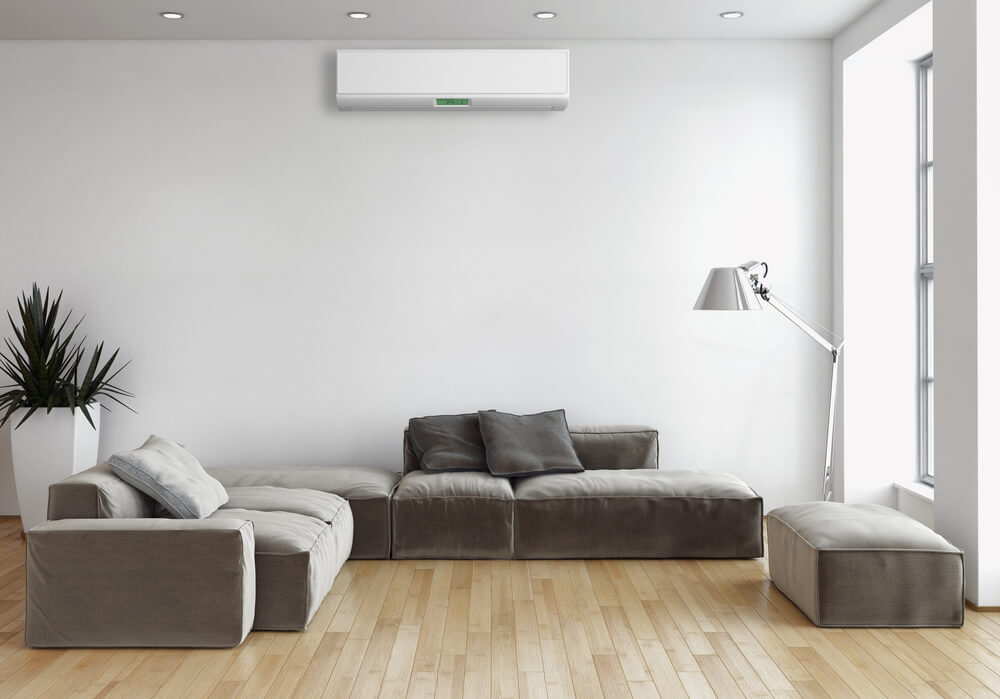How to Properly Clean your Air Conditioning Unit

Today, air conditioning units have become essential appliances for a comfortable lifestyle. However, we should clean them regularly to prevent problems like odor, insufficient cooling or inefficient energy use.
For proper maintenance, we should go through basic measures at least two times a year. On a further note, it’s best to clean the unit before winter or summer kicks in to make sure that it runs efficiently. Keeping it clean will also prevent health and environmental problems.
Air conditioning maintenance
In certain cases, you’ll need to call a professional. But for the most part, cleaning an air conditioning unit isn’t complicated and you can do it by yourself.
1. Filters
The filters are fitted inside the interior air conditioning unit and are responsible for filtering air, removing dust from the room. You should clean these deodorizing and air-purifying filters regularly because harmful particles build up on them, reducing energy efficiency. Some companies even recommend replacing them every 6 months.
You just need a gentle soap and plenty of water to leave them like new. Let them dry completely before fitting them back in. You’ll also need to clean the area that holds the filters with a brush.
Keeping your filters clean is crucial for circulating healthy air and preventing conditions like bronchitis or rhinitis.

2. Evaporator coil
The coil is located in a compartment separate from the actual air conditioning unit. It doesn’t have filters, but it still needs a good clean. In summer, the coil creates a lot of humidity and accumulates germs, bacteria, and viruses on top of dust, which could result in unpleasant odors.
You should clean it throughout and regularly. Contact a professional or do it yourself by using a brush over the outer part. You might need a compressed air machine to clean the interior part.
3. Drain pan
The drain pan is located in the exterior unit. An air conditioning unit creates evaporation which builds into dirty droplets of water. Failing to clean them off regularly can harm your air conditioning unit.
Aside from cleaning off the water, disinfecting the pan as well as the draining unit itself is a good idea. You should also make sure that nothing is blocked.
4. Refrigerant pressure
Checking the refrigerant pressure of your air conditioning unit is very important. It can notify you of any leaks or irregularities. Keeping the pressure stable can help your unit last longer.
If you have a model that doesn’t indicate the refrigerant pressure, you should contact a professional. Should there be any irregularities in the pressure level, you’ll notice that your unit will fail to cool air down or that the unit might be blocked entirely.
Remember: refrigerants are extreme pollutants
5. Disinfection
Once you’ve finished cleaning your air conditioning unit thoroughly, consider disinfecting it. Water and bleach isn’t the best or safest idea. Instead, look for bactericides or fungicides. Sprays are the best option as they’re safe and the easiest to use.

Final recommendations
To wrap up the maintenance, make sure that the electrical cords are all in good condition. Also, check to see if the thermostats function correctly. Once you’re finished cleaning, leave the unit on in the fan function before using it again.
Aside from at-home maintenance, contacting professionals to cover other jobs like lubricating and revising the motor, duct, and diffusers is something to consider. It all depends on how much you’ve used your unit. Giving it a thorough check-up at least once a year is highly recommendable.
And remember: keeping your air conditioning unit clean and safe is vital for the unit itself as well as for you and your family. These simple tricks will make sure that it’s ready to use again.
Today, air conditioning units have become essential appliances for a comfortable lifestyle. However, we should clean them regularly to prevent problems like odor, insufficient cooling or inefficient energy use.
For proper maintenance, we should go through basic measures at least two times a year. On a further note, it’s best to clean the unit before winter or summer kicks in to make sure that it runs efficiently. Keeping it clean will also prevent health and environmental problems.
Air conditioning maintenance
In certain cases, you’ll need to call a professional. But for the most part, cleaning an air conditioning unit isn’t complicated and you can do it by yourself.
1. Filters
The filters are fitted inside the interior air conditioning unit and are responsible for filtering air, removing dust from the room. You should clean these deodorizing and air-purifying filters regularly because harmful particles build up on them, reducing energy efficiency. Some companies even recommend replacing them every 6 months.
You just need a gentle soap and plenty of water to leave them like new. Let them dry completely before fitting them back in. You’ll also need to clean the area that holds the filters with a brush.
Keeping your filters clean is crucial for circulating healthy air and preventing conditions like bronchitis or rhinitis.

2. Evaporator coil
The coil is located in a compartment separate from the actual air conditioning unit. It doesn’t have filters, but it still needs a good clean. In summer, the coil creates a lot of humidity and accumulates germs, bacteria, and viruses on top of dust, which could result in unpleasant odors.
You should clean it throughout and regularly. Contact a professional or do it yourself by using a brush over the outer part. You might need a compressed air machine to clean the interior part.
3. Drain pan
The drain pan is located in the exterior unit. An air conditioning unit creates evaporation which builds into dirty droplets of water. Failing to clean them off regularly can harm your air conditioning unit.
Aside from cleaning off the water, disinfecting the pan as well as the draining unit itself is a good idea. You should also make sure that nothing is blocked.
4. Refrigerant pressure
Checking the refrigerant pressure of your air conditioning unit is very important. It can notify you of any leaks or irregularities. Keeping the pressure stable can help your unit last longer.
If you have a model that doesn’t indicate the refrigerant pressure, you should contact a professional. Should there be any irregularities in the pressure level, you’ll notice that your unit will fail to cool air down or that the unit might be blocked entirely.
Remember: refrigerants are extreme pollutants
5. Disinfection
Once you’ve finished cleaning your air conditioning unit thoroughly, consider disinfecting it. Water and bleach isn’t the best or safest idea. Instead, look for bactericides or fungicides. Sprays are the best option as they’re safe and the easiest to use.

Final recommendations
To wrap up the maintenance, make sure that the electrical cords are all in good condition. Also, check to see if the thermostats function correctly. Once you’re finished cleaning, leave the unit on in the fan function before using it again.
Aside from at-home maintenance, contacting professionals to cover other jobs like lubricating and revising the motor, duct, and diffusers is something to consider. It all depends on how much you’ve used your unit. Giving it a thorough check-up at least once a year is highly recommendable.
And remember: keeping your air conditioning unit clean and safe is vital for the unit itself as well as for you and your family. These simple tricks will make sure that it’s ready to use again.







